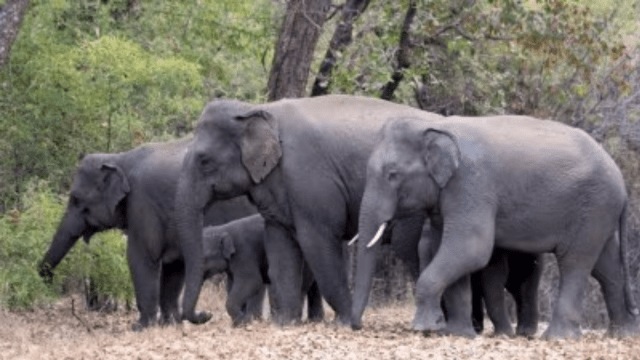‘Operation Jumbo unscientific and ineffective’: Animal rights body appeals to end capture of wild elephants in Karnataka
The appeal comes after several deaths of elephants were reported, including that of the popular Arjuna, during the capture of wild elephants under Operation Jumbo.

The Centre for Research on Animal Rights (CRAR) and the Federation of Indian Animal Protection Organisations (FIAPO) has appealed to the Karnataka government to immediately stop the capture of wild elephants under Operation Jumbo and instead place a comprehensive plan of action to mitigate human-elephant conflicts.
The appeal comes after several deaths of elephants were reported, including that of the popular Arjuna, during the capture of wild elephants under Operation Jumbo.
The move also comes in the wake of the Karnataka Forest department resuming a fresh round of capture days after abandoning the operations following the death of Arjuna. The department has captured 40-50 wild elephants in the Hassan-Kodagu region as a solution to the incidents of human-elephant conflicts.
“Capture of elephants from the wild is an egregious exercise of the power embedded under Section 11 of the Wildlife Protection Amendment Act which is also leading to the death of innocent wild elephants (a protected Schedule I species). It must be stopped at once,” said Alok Hisarwala, lawyer-activist and founder of the CRAR.
The animal rights body claims that Karnataka conducts the highest Section 11 capture of wild elephants in the country. “The use of capture as a solution to human-elephant conflict is unscientific, ineffective and has led to the deaths of a large number of wild elephants in the state. In 2023 alone, three elephants succumbed to death during capture of wild elephants. These botched up captures go unquestioned and emboldened by this, the Karnataka government continues on this path of capturing wild elephants with impunity,” a statement by the CRAR said.
“The use of capture is more a sensationalist smokescreen to appease the general public, and in effect, does not ensure peaceful coexistence. Commercial encroachments of forest lands, especially elephant corridors, are the main drivers of human-elephant conflict. Elephant reserves must be recognised as legally protected areas, like tiger reserves. Even after 10 years since the 2013 High Court order, the government has failed to declare notified forest areas within elephant corridors as reserve forests under Section 17 of the Karnataka Forest Act,” said Bharati Ramachandran, CEO of the FIAPO.
She added, “We also need to undo the damage caused by unrestricted encroachments by removing them from critical elephant corridors and habitats. This can only be achieved through strong political will to ensure the protection of elephants and humans.”
The three key demands that the groups have presented to the government include the formation of guidelines to regulate the exceptional power under Section 11 of the Wild Life Protection Amendment Act, 2022, and to issue a capture order to mitigate conflicts under Section 11 only on rare exceptions.
The groups have also demanded the power in Section 11 be delegated to an expert body consisting of scientists, ecologists, forest officers, lawyers, and members of the civil society.
The group has called for protecting human and non-human interests in equal measures. The groups stated that the committee must propose renewed ways of approaching the conflict, by discarding the zonal distinctions of land where elephants can and cannot be, to one of permanent co-existence.
Further the groups have also demanded the government develop best practices for mitigating human-elephant conflict in Karnataka by learning from the examples of other neighbouring states such as Tamil Nadu that have moved away from the capture-for-captivity concept.
They have suggested reviewing the success stories from Valparai and Gudalur of early message warning systems, thermal drones and radio-collaring among other methods.












